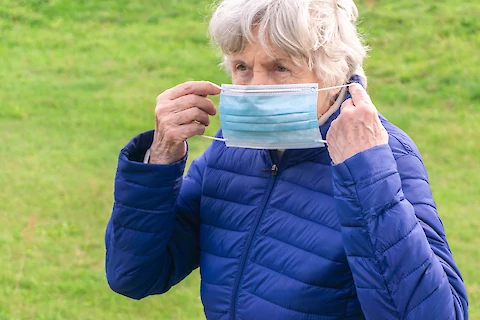
Our immune systems become less robust as we age, making us more susceptible to various illnesses. One such viral infection, often overlooked but considerably impactful for senior health, is the Respiratory Syncytial Virus (RSV). Let's explore what RSV is, why it poses a significant threat to seniors, and steps that can be taken to minimize risks.
What is RSV?
RSV is a common viral infection that causes respiratory tract illnesses. While RSV can affect people of all ages, it tends to be particularly harmful to infants, young children, and seniors. This virus is highly contagious and spreads through an infected person's cough or sneeze droplets. It can also survive on surfaces like doorknobs and countertops, making it easy to contract inadvertently.
RSV infection can cause symptoms similar to a common cold, including a runny nose, decreased appetite, coughing, and sometimes fever. However, in seniors, especially those with weakened immune systems, it can result in severe conditions such as bronchitis and pneumonia.
What is the Risk of RSV for Seniors?
Seniors are at an increased risk of developing severe RSV infection due to physiological changes that come with aging, including a weaker immune system and reduced lung capacity. According to the Centers for Disease Control and Prevention, up to 160,000 seniors are hospitalized each year due to RSV infection. This statistic underlines the importance of understanding and taking preventive measures against this virus.
How Seniors Can Minimize RSV Risks
Preventing RSV involves adopting good hygiene practices. Regular hand washing with soap and water, avoiding close contact with sick individuals, and cleaning frequently touched objects or surfaces can help reduce the risk of RSV infection.
If seniors believe they have been exposed to RSV, early detection and treatment can lessen the severity of the illness. Common symptom management includes rest, hydration, and over-the-counter medicines based on a healthcare provider's advice.
The RSV Vaccine and Seniors
The United States Food and Drug Administration has approved two RSV vaccinations for use in persons 60 and older. Both vaccinations contain a portion of the RSV virus and function by inducing an immune response that can protect you from respiratory problems in the future if you become infected with RSV. Based on conversations between the patient and their health care practitioner, the CDC advises that persons 60 years of age and older receive a single dose of RSV vaccine.
It's important to stress that any decision about vaccinations or treatments should be made in consultation with a healthcare provider. This blog post is informational and not intended to replace professional medical advice. Always consult your healthcare provider for personalized recommendations tailored to your health needs.
How In-Home Care Can Help Protect Seniors
RSV is a considerable health risk to seniors, but this risk can be significantly reduced with knowledge and preventive measures. Understanding RSV, recognizing its symptoms, and taking steps to prevent its spread can go a long way toward protecting our senior loved ones.
At Senior Helpers Clearwater, we're committed to ensuring the well-being of seniors in our community. Whether you're in Safety Harbor, Pinellas Park, or Largo, our trained professionals are ready to assist with personalized elder care solutions. Don't hesitate to contact us if you need help navigating the complexities of senior health and wellness. Safety, comfort, and good health should always be within reach for our beloved seniors.